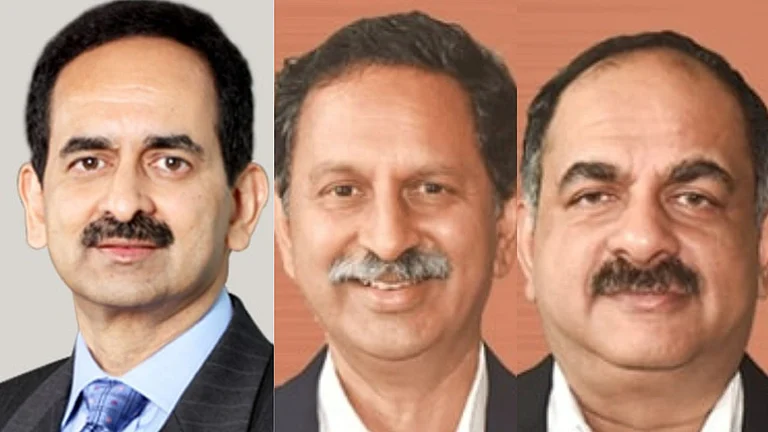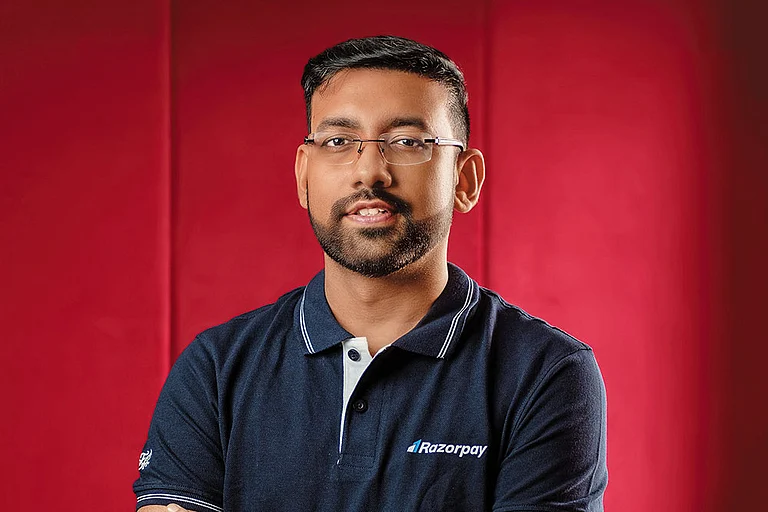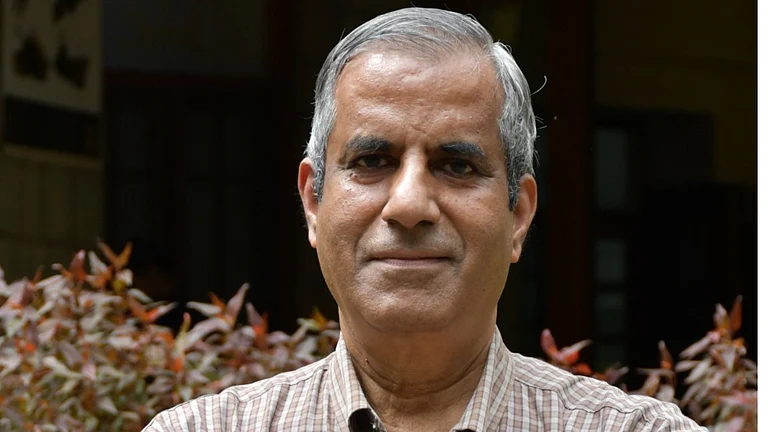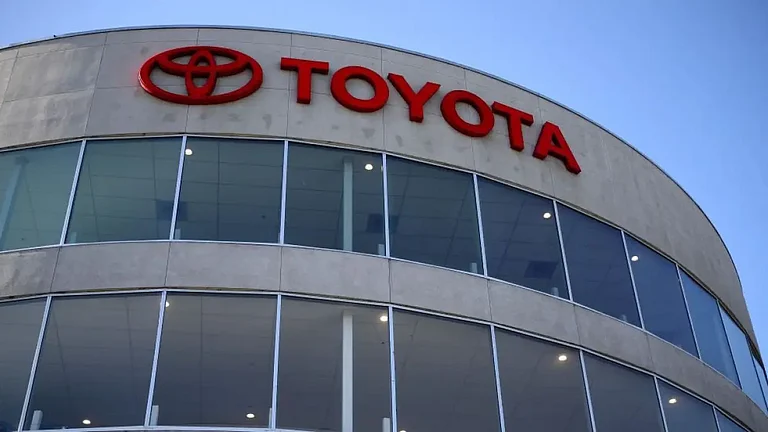What was it like growing up in a business family? And how did it shape your career?
Both my parents were working. They both had their individual careers. They both were very focused on their work. And when I was at home with them, they always included me in their work-related conversations with a high level of transparency. I was always a part of it.
All the good times, the very difficult ones, all work-related matter, their struggles and the big wins. It’s always been an integral part of me ever since I can remember. I grew up with this and these kinds of conversations, this great level of transparency with my parents telling me everything.
I don't think it was something I had to even think about but I knew that one day I'm going to go through these same experiences, the same struggles and big wins. I knew that I would eventually join the family business at some point.
What left a strong impression on me was that for both my parents, their integrity was always their focus. My father’s focus was “India first.” He wanted to build companies and products that benefited the country. I grew up with these kinds of values.
What was your first exposure to Toyota Kirloskar Motor (TKM), and how were you trained for the role you eventually stepped into?
I had the opportunity to work at TKM as a trainee, where I went through the same rigorous shop-floor training that our technicians go through. There’s this famous way of handling bolts and Toyota is known for that.
You are trained to pick up 4–5 bolts from a box without looking at the box. So, while the line is moving, I have to pick up five bolts but I can’t look at the box and count.
That's something I learnt and to me that was fascinating. We also had to identify measurements visually. We needed to understand separations like one centimeter, two centimeters, or an inch just by looking at the degree of separation and identify, “Okay, that’s one inch,” or “That’s one centimeter.” That’s the level of efficiency with which Toyota runs.
At the same time, I have pursued my passion through my NGO, Caring with Colour, which works in the education space. I’ve been teaching at a government primary school since I was 13. So finally, I was able to formalise that through this non-profit.
As I evolved in all these different roles, both personally and professionally, a very important lesson that has stayed with me is that true wealth really lies in the people around us, those who shape us, support us and inspire us to become better human beings every day.
The experiences I have had till now have helped me understand what it truly takes to build an organisation from the inside out. I’ve joined an already established organisation and I’ve also worked from scratch in a non-profit space, where the challenges are completely different.

You stepped into this role at a very difficult time in your life. How did you begin to process it?
As you know, I had to take on a greater responsibility at a very unexpected time [her father Vikram Kirloskar passed away on November 29, 2022, after a heart attack]. Within 24 hours, everything changed and I was given this position for which honestly, I wasn’t prepared. And it was at that time that I remembered everything my father ever said to me.
When I got on to the board of TKM for the first time [in July 2021], I had a few conversations with my dad. He wasn’t an over-communicator. He would tell me certain things and then we’d be talking about music. When he said those things to me at the time, I thought, “Oh, I’ll never really have to think about these things. My dad is going to be around forever.”
But at that moment, on that day, it all just came rushing back to me. I followed those few golden rules. They prepared me for this position. I know that I am wholeheartedly committed to the companies and to the role that I have within the company.
You were dealing with personal loss and stepping into a major role at the same time. How difficult was that transition?
I was three or four months pregnant with my second child. My son was about two-and-a-half years older. He was very close to my dad. He called him Obba. He would ask, “Where is Obba?” I had to explain the whole thing to him and I did. He still talks about it to this day.
And when you’re four months pregnant, you have to be very careful, mentally and physically. You just have to be 100% careful. I couldn’t cry. I had to make sure I wasn’t crying because I had two children to think about. I had my son to care for, and my unborn child, who was three months in my womb. It was such a critical time and I just couldn’t believe what had happened.
I was very emotional, but at the same time, I was on a very stable plane. I had to pull it together. I had to cut out all the noise. I just woke up at 6am the next morning, after everything happened, and sat down with a piece of paper and a pen.
I sat at my dad’s desk at his home in Bangalore and started writing “What do I have to do now?” I just kept writing and writing, then reading everything I had written, sitting on my dad’s chair. I was like “Papa, what am I supposed to do now? Just help me think, help me write”. And I kept writing. Then I took it one day at a time, trying to fulfill one trust after the other.
So, this is what I did. Both my mother and I were focused on making sure the people working around us saw us as two strong individuals, two strong women. Anyway, as women I think you have to show a little extra strength so that others continue to have confidence in you. There were so many different things happening that I waited for a long time to actually release my grief.

Have there been moments where you felt you were held back or were there challenges that stayed with you?
Some of the challenges I see within myself come from being conscious of the fact that I’m not an engineer. My dad was an engineer. He built the factory. He knew it inside out. He was a factory man. He built over 25 factories. He designed products himself.
And I was always very self-conscious, less about being a woman, and more about being a painter. I used to wonder, “Am I really going to be able to contribute to this company?” But because of the support of my colleagues and peers, I’ve been able to work here and slowly gain more confidence even with my painting background.
Very few women lead legacy businesses. While things are changing, do you think there’s still a long way to go?
Right now, you can see a big shift happening whether it’s in family businesses or among professionals. More women are coming into the workplace.
Of course, I think there’s still a long way to go. TKM is doing a fantastic job when it comes to being inclusive. We have a technical training institute where men and women are trained side by side to work on the shop floor. Traditionally, you didn’t see many women working on the shop floor. But even at TKM, there’s a shift happening.
TKM is doing a fantastic job in being inclusive. We have a technical training institute where men and women are trained side by side to work on the shop floor.
What are the biggest headwinds you see for TKM?
There’s a shortage of skilled manpower. To address this, we’ve made sustained investments over the years in advanced training and education through our Toyota Technical Training Institute and the Toyota Kaushalya programme. And of course, business continuity goes beyond just individual businesses. It’s about building resilient ecosystems that drive inclusive growth.
AI is disrupting manufacturing. How is TKM preparing for that?
The thing with AI is that it brings about insecurity around jobs or lack of opportunities. Especially in a country like India, where we have the largest youth population in the world, our approach to innovation is focused on how we can address concerns around reduced labour requirements.
We have to generate jobs but at the same time we can’t ignore technological advancements. That’s where we need to innovate, figuring out how to maintain that balance.
It’s been over two years since you stepped into a big role. How do you reflect on the journey so far?
I think two-and-a-half years is a very short time for me or for others to really judge how I’m doing or what I’ve contributed. But one thing I do take pride in is that I’ve learned, as a leader, how to step back when needed. I’ve learned how to manage my ego.
Because this came at such an unexpected time, I know when to say someone else knows better than I do. [That] someone else is right. I haven’t had that same level of experience. And I think it’s important for a leader to be able to communicate and acknowledge that, and make decisions that allow them to step back.
I don’t always have to be the first person in line. I can be second. I can be third. Because ultimately, a leader’s goal is to make sure that TKM does well, that TKM succeeds and that TKM thrives. And if that means, in certain situations, I am third in line, I’m more than happy to do that.
What are your priorities for the company to push the next phase of growth?
So far, Toyota group companies have invested over ₹16,000 crore in India. This includes an ongoing ₹4,000 crore investment, out of which ₹3,300 crore is being channelled towards setting up our third plant. Toyota Kirloskar Auto Parts’ investment in e-drive manufacturing, with a capacity of 1.35 lakh units, is also a key part of this strategy.
Where do you see TKM in the next 5–10 years?
Our future is very much anchored on innovation, sustainability and community empowerment. Ten years down the line, we want to know not just that we were successful but why we were successful. What was our motivation? It was to make sure the communities around us shared in that success.

What legacy do you hope to build?
My father lived a life rooted in strong values. He was an ethical man. A humble man. He always walked the straight path. That’s my motivation to follow in his footsteps. That’s the legacy I want to leave behind.













